Our products
Building a Safety Net for European Journalists
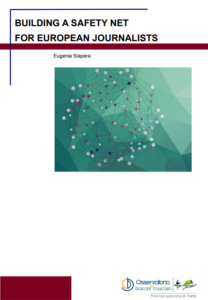
This report identifies needs and problems experienced by journalists in 11 South-East European countries, including Italy and Turkey. The analysis focuses on safety issues and impediments, suggesting possible remedial measures. By Eugenia Siapera (Dublin City University)
Title: Building a Safety Net for European Journalists
By: Dr Eugenia Siapera, School of Communications, Dublin City University, Ireland
Collaborators: Marzia Bona, OBC: Croatia and Slovenia, Tzvetina Borisova, OBC: Montenegro, Romania, Serbia, Svetla Dimitrova, OBC: Bulgaria and Macedonia, Fazila Mat, OBC: Turchia, Lambrini Papadopoulou, Panteion University, Grecia: Cipro e Grecia, Rossella Ricchiuti, Ossigeno per l’Informazione: Italia
Publisher: Osservatorio Balcani e Caucaso – Pages: 87 – Language: English – Year of Publication: 2015
Organic Balkans
BalcaniBio_ENG 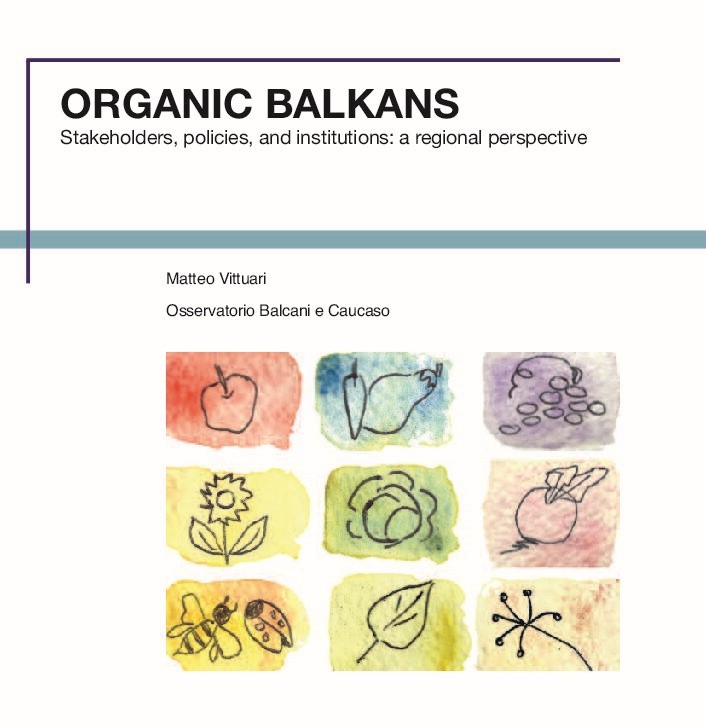 Organic agriculture in the Balkans is still in its early stages though it already acts as a fundamental stimulus to sustainable rural development in the region. Through a comparative analysis of organic farming in the countries of South East Europe the book provides original insights into the process of European Union integration
Organic agriculture in the Balkans is still in its early stages though it already acts as a fundamental stimulus to sustainable rural development in the region. Through a comparative analysis of organic farming in the countries of South East Europe the book provides original insights into the process of European Union integration
The Lion and the Gazelle
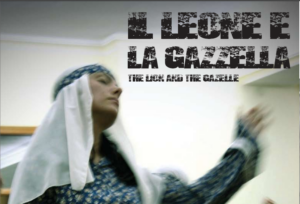 Nor Sunnies nor Shiites, heterodox Muslims of nomadic origins and mystical traditions: Turkish Alevis are estimated at around 10-15 millions against a total population of 70 millions. Enthusiastic supporters of Atatürk laicism, they were always seen with suspicion by the central authorities and the majority of the population. “The Lion and the Gazelle”, a documentary film by OBC
Nor Sunnies nor Shiites, heterodox Muslims of nomadic origins and mystical traditions: Turkish Alevis are estimated at around 10-15 millions against a total population of 70 millions. Enthusiastic supporters of Atatürk laicism, they were always seen with suspicion by the central authorities and the majority of the population. “The Lion and the Gazelle”, a documentary film by OBC
Disponibile integrale in streaming
Regia: Fabio Salomoni, Davide Sighele – Immagini: Elvan Kıvılcım – Presa diretta audio: Elvan Kıvılcım – Montaggio: Davide Sighele – Postproduzione audio: Carlo Dall’Asta – Musiche: fattoria del vento; Aşik Mahzuni Şerif, Hűsnű Kızılgöz – Produzione: Osservatorio Balcani e Caucaso (ITA 2010) 30′ PAL-OBC MMX-2 – Lingue: Turco – Sottotitoli: ITA; ENG; TURK – Traduzioni: Fazıla Mat, Mariavincenza Mattivi, Fabio Salomoni – Extra: Cem, la cerimonia degli aleviti – Fotografie: Andrea Rossini – Grafica: Andrea Pandini
Il leone e la gazzella è stato realizzato grazie al sostegno della Provincia autonoma di Trento e del Comune di Rovereto
Lips, eyes, ears. A journey through the Albanian Alps
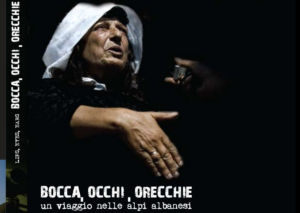 Michael is on the tracks of the Indo-European language, Gianni is an Arbëresh and teaches Albanian at the University of Calabria, Monica was the first researcher in Italy to obtain a PhD in Albanology. A group of linguists travelling into the majestic beauty of Albanian mountains in a quest for lost words and languages.
Michael is on the tracks of the Indo-European language, Gianni is an Arbëresh and teaches Albanian at the University of Calabria, Monica was the first researcher in Italy to obtain a PhD in Albanology. A group of linguists travelling into the majestic beauty of Albanian mountains in a quest for lost words and languages.
“Lips, eyes, ears” traces a portrait of an unusual job, introducing a special perspective on today’s Albania, its culture, and its landscape
Directed by: Micol Cossali; Davide Sighele
Camera: Davide Sighele Editing: Micol Cossali
Sound: Carlo Dall’Asta Music: fattoriadelvento
Grafic design: Andrea Pandini
Production: Osservatorio Balcani e Caucaso – ITA, 2009, 29′ PAL – OBC MMIX-1
Bocca, occhi, orecchie è stato realizzato grazie al sostegno della Regione autonoma del Trentino-Alto Adige e della Provincia autonoma di Trento
Circle of memory
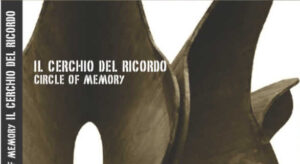 The unique experience of a group of architects and sculptors in 1960s and 1970s Yugoslavia, introducing new ways to remember World War II and the victory upon Nazism and Fascism. The curse of history at the beginning of the 90s, with the nationalist forces using those same memories to manipulate the different national communities and lead the country into war. A journey into European memory of the 20th century, the century that started and ended in Sarajevo
The unique experience of a group of architects and sculptors in 1960s and 1970s Yugoslavia, introducing new ways to remember World War II and the victory upon Nazism and Fascism. The curse of history at the beginning of the 90s, with the nationalist forces using those same memories to manipulate the different national communities and lead the country into war. A journey into European memory of the 20th century, the century that started and ended in Sarajevo
The film profession in the Balkans
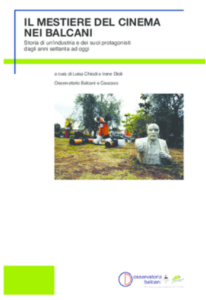 Twenty years after the end of the cold war, cinema offers an original perspective highlighting the political-social, economic and cultural transformations in South East Europe. Telling the stories of the inhabitants of the Balkan cinema microcosm, this volume analyses the cultural segment which has primarily shaped the collective imagination of society in the region, from the boom of the 1970s to the globalisation of recent years.
Twenty years after the end of the cold war, cinema offers an original perspective highlighting the political-social, economic and cultural transformations in South East Europe. Telling the stories of the inhabitants of the Balkan cinema microcosm, this volume analyses the cultural segment which has primarily shaped the collective imagination of society in the region, from the boom of the 1970s to the globalisation of recent years.
Title: Il mestiere del cinema nei Balcani. Storia di un’industria e dei suoi protagonisti dagli anni settanta ad oggi – Edited by: Luisa Chiodi e Irene Dioli – Editore: Osservatorio Balcani e Caucaso – Pages: 120 – Language: Italian – Year of publication: 2009
Bad memories
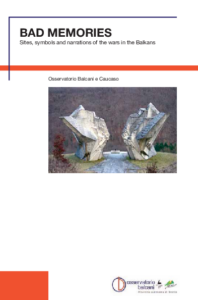 A collection of papers presented at the conference “Bad memories. Sites, symbols and narrations of wars in the Balkans”, organised by Osservatorio Balcani in Rovereto, Trento, on 9 November 2007. The conference was part of a project devoted to Second World War memorial sites in former Yugoslavia, co-sponsored by the European Union and the Autonomous Province of Trento
A collection of papers presented at the conference “Bad memories. Sites, symbols and narrations of wars in the Balkans”, organised by Osservatorio Balcani in Rovereto, Trento, on 9 November 2007. The conference was part of a project devoted to Second World War memorial sites in former Yugoslavia, co-sponsored by the European Union and the Autonomous Province of Trento
Title: Bad memories. Sites, symbols and narrations of the wars in the Balkans – Publisher: Osservatorio Balcani e Caucaso – Pages: 91 – Formato: Libro, 14×21 – Language: English – Year of publication: 2008
Kinostudio
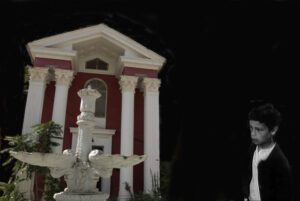 Artan Puto, born in 1969, is a university professor; however, people in the streets still recognize him as the star ofTomka and his friends, one of the most popular children’s movies of Albanian cinema. An unusual point of view on today’s Albania and on the changes which took place in this country. A documentary film by Micol Cossali and Davide Sighele.
Artan Puto, born in 1969, is a university professor; however, people in the streets still recognize him as the star ofTomka and his friends, one of the most popular children’s movies of Albanian cinema. An unusual point of view on today’s Albania and on the changes which took place in this country. A documentary film by Micol Cossali and Davide Sighele.
After Srebrenica. Past and present
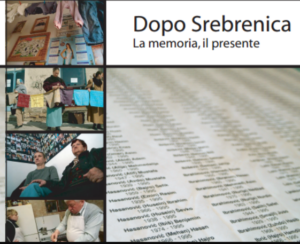 Ten years after the massacre of July 1995, this is the story of the town that has become a symbol of ethnic cleansing and racist violence in Europe. The documentary brings the viewer from Tuzla – where women fight for the investigation of their loved ones’ disappearance, through Potočari – former headquarter of international peace forces, and all the way to Srebrenica. Going back and forth between present times, history, and memory, parallel narratives unfold, surrounded by a sense of alienation, in the heart of a town where the conflict does not yet seem to have found an end. “After Srebrenica” was filmed thanks to the support of the Autonomous Province of Trento.
Ten years after the massacre of July 1995, this is the story of the town that has become a symbol of ethnic cleansing and racist violence in Europe. The documentary brings the viewer from Tuzla – where women fight for the investigation of their loved ones’ disappearance, through Potočari – former headquarter of international peace forces, and all the way to Srebrenica. Going back and forth between present times, history, and memory, parallel narratives unfold, surrounded by a sense of alienation, in the heart of a town where the conflict does not yet seem to have found an end. “After Srebrenica” was filmed thanks to the support of the Autonomous Province of Trento.
Zastava Planet
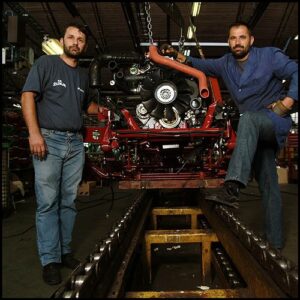
Operai della Zastava – Gughi Fassino
It was called Crvena Zastava, Red Flag, and it was the biggest car producer in the Balkans. Following the fall of Yugoslavia, it entered a devastating crisis, reaching its peak during the Nato bombings of 1999. While the factory lost its workers, the city of Kragujevac became one of the main destination for Kosovo refugees. A story on the violent transition from socialism to the market economy. Zastava Planet has been produced thanks to funding from the Autonomous Province of Trento




